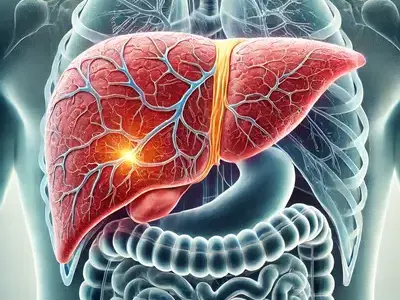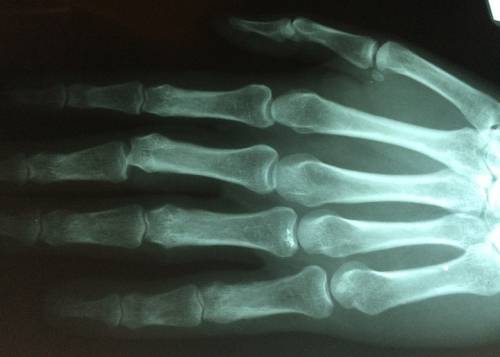Liver fibrosis is a condition that often raises more questions than answers. How long does it take to recover? Is full recovery possible? What can you do to support the healing process? In this article, we’ll dig into these questions, present the latest facts, and offer practical advice for those on the journey to recovery.
What Is Liver Fibrosis and Why Does It Happen?
Liver fibrosis is the accumulation of scar tissue in the liver, typically as a response to chronic injury or inflammation. This condition can be triggered by various causes such as hepatitis, non-alcoholic fatty liver disease (NAFLD), and chronic liver inflammation. When liver cells are damaged, the body responds with fibrosis, which is the body’s way of forming scar tissue. Unlike healthy liver tissue, scar tissue cannot perform the essential functions of the liver, leading to compromised liver health over time.
Can Liver Fibrosis Be Reversed?
The good news is that, unlike cirrhosis, liver fibrosis is often reversible if the underlying cause is treated promptly. Recovery, however, depends heavily on the fibrosis stage, lifestyle adjustments, and consistent medical care.
- Early Stages: For those in the early stages of fibrosis (Stage 1 or 2), reducing liver inflammation and addressing the root cause (like managing blood sugar levels in NAFLD or treating hepatitis) can potentially reverse the scarring entirely. According to recent studies, patients with Stage 1 fibrosis who eliminate the source of damage can see significant improvements within 6 months to a year.
- Advanced Stages: For advanced fibrosis (Stage 3), the scar tissue becomes more pronounced, and full recovery may not be possible. However, halting progression and even reversing some of the scarring is achievable with persistent effort. Fibrosis reversal in advanced stages can take several years, and maintaining good liver health requires ongoing lifestyle changes.
How Long Does Recovery Take?
Recovery from liver fibrosis varies significantly based on several factors:
- Stage of Fibrosis: As mentioned, early-stage fibrosis can be addressed within months, while more advanced stages can take several years or may only partially reverse.
- Cause of Fibrosis: If fibrosis results from manageable conditions such as alcohol consumption or NAFLD, recovery may be faster if lifestyle changes are made immediately. However, fibrosis resulting from autoimmune diseases may be harder to reverse completely.
- Age and Overall Health: Younger individuals and those without comorbidities often recover faster. For example, a study conducted in 2023 found that individuals under 40 years old had a 30% higher rate of fibrosis improvement compared to those over 50 years old.
- Commitment to Lifestyle Changes: The effectiveness of treatment is closely tied to lifestyle changes, including diet, exercise, and avoiding liver toxins. For instance, those who adhered to a Mediterranean-style diet rich in antioxidants showed improvement in fibrosis markers up to 2x faster compared to those on a standard Western diet.
A Closer Look: What Helps Speed Up Recovery?
1. Diet and Nutrition
The liver is one of the body’s most metabolically active organs, which means nutrition plays a key role in its recovery. A diet rich in vegetables, lean proteins, and healthy fats can help decrease inflammation and promote healing.
Did you know that broccoli may actually help prevent further liver damage? A 2021 study published in The Journal of Nutrition showed that consuming broccoli reduced the buildup of fat in the liver and decreased inflammation by 28%. Consuming foods like fatty fish (rich in omega-3s), walnuts, and avocados has also been linked to improved liver function.
2. Physical Activity
Regular exercise has been shown to improve liver health significantly. Engaging in at least 150 minutes of moderate activity per week can reduce liver fat and inflammation, two key drivers of fibrosis. Exercise doesn’t have to be exhaustive—brisk walking or cycling are excellent options that have shown promising results.
3. Medical Treatment
Depending on the cause, there are specific treatments that can aid in the reversal of fibrosis. For example, antiviral drugs for hepatitis patients can significantly reduce liver inflammation and fibrosis progression. Similarly, for those with NAFLD, insulin sensitizers like pioglitazone have shown positive effects in reversing fibrosis in clinical trials.
Did You Know?
A groundbreaking study in 2022 found that the combination of vitamin E and pioglitazone improved liver fibrosis in up to 50% of patients with NAFLD. This offers new hope for non-invasive, cost-effective treatments for liver fibrosis.
Stages of Recovery: What to Expect
The recovery journey from liver fibrosis is often divided into distinct stages:
- Inflammation Reduction: The first few months after diagnosis involve aggressive measures to reduce inflammation. This period is critical, as reducing liver inflammation is the key to stopping the progression of fibrosis.
- Initial Reversal: For those in early-stage fibrosis, this period often lasts between 6 months to 1 year, depending on adherence to treatment and lifestyle changes.
- Long-Term Maintenance: Advanced fibrosis requires long-term maintenance. This means regular monitoring, consistent dietary adjustments, and a sustained effort to keep liver inflammation at bay.
Can You Fully Recover From Liver Fibrosis?
The idea of full recovery depends on how early the condition is caught. Fibrosis at early stages is reversible, with complete liver regeneration possible if the underlying cause is managed and the liver is not severely damaged. However, those with Stage 3 fibrosis might not achieve full reversal. Instead, the focus is on halting progression, improving liver function, and preventing cirrhosis.
The price of treating liver fibrosis can vary significantly based on location, treatment type, and the medications required. For example, antiviral treatments for hepatitis can cost anywhere from $200 to $2,000 monthly, depending on the specific medication and treatment duration. Nutritional supplements and other non-prescription treatments might range between $50 to $150 per month.
Practical Advice From Our Editorial Team
Recovering from liver fibrosis is possible with early intervention, diligent lifestyle changes, and appropriate medical treatment. The key takeaway is that the liver has a remarkable capacity to heal itself, but it needs the right environment. Eating well, staying active, and addressing any underlying conditions are the building blocks of a successful recovery.
If you’ve been diagnosed with liver fibrosis, work closely with your healthcare provider to develop a personalized plan. Each step you take, no matter how small, contributes to a healthier liver and, ultimately, a healthier life.
About the Author
Reyus Mammadli is the author of this health blog since 2008. With a background in medical and biotechnical devices, he has over 15 years of experience working with medical literature and expert guidelines from WHO, CDC, Mayo Clinic, and others. His goal is to present clear, accurate health information for everyday readers — not as a substitute for medical advice.







